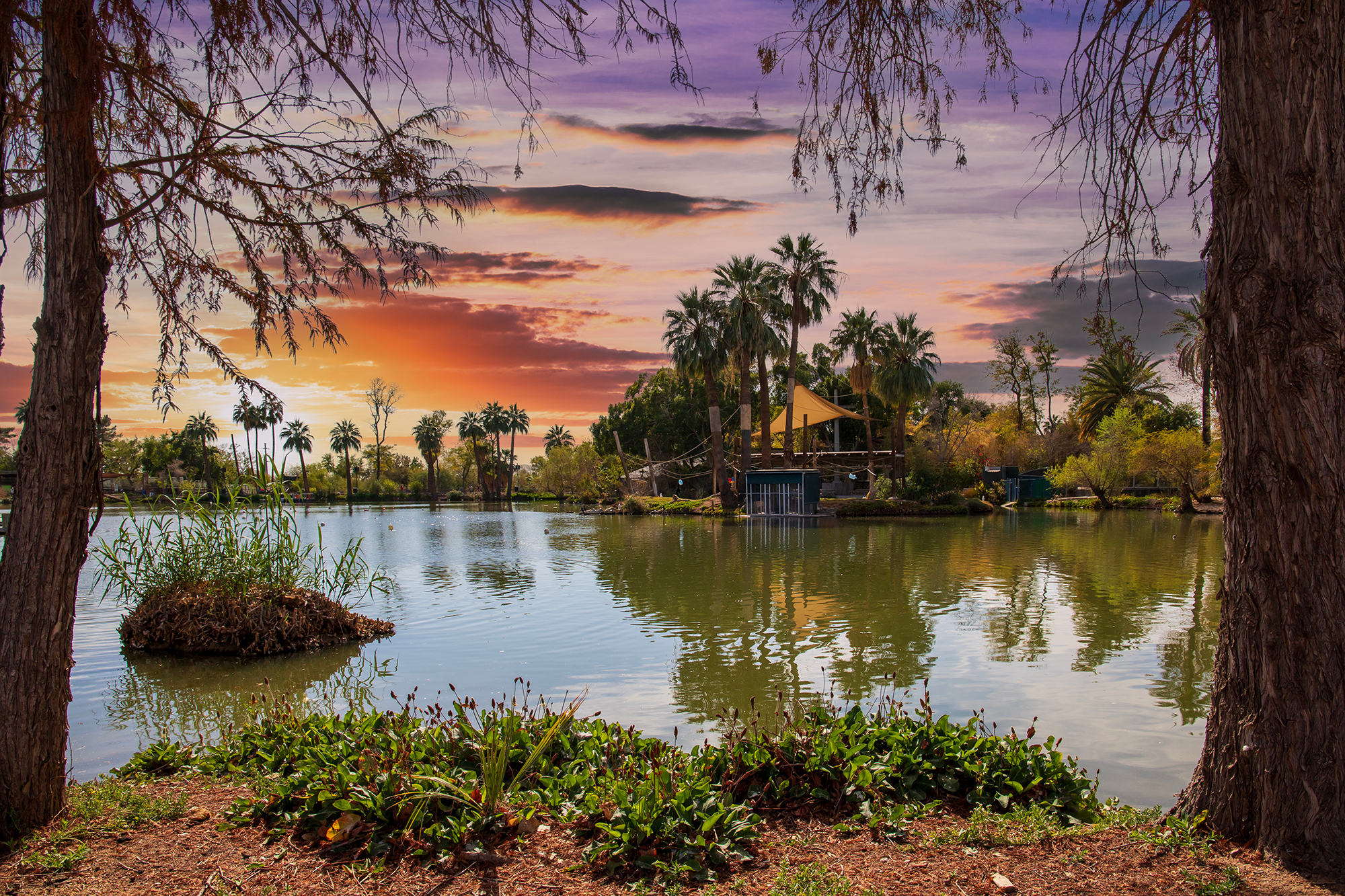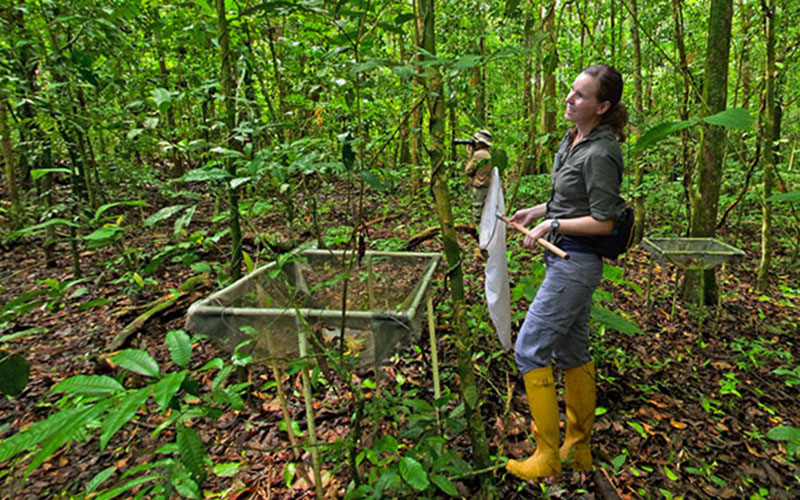
Advancing interdisciplinary partnerships

Phoenix Zoo
Zoos often serve as global conservation agents working to save species, educate the public about species loss and recovery, practice conservation breeding and reintroduce animals into the wild. These efforts depend on understanding the scientific complexities of the animals and their habitats, as well as the history, ethics and policies that deeply impact animal survival.

The School of Life Sciences and Phoenix Zoo fellowship program is intended to strengthen animal conservation efforts by collaborating on new research, as well as improve conservation communications and outreach to the public.
This collaboration connects the research community in the school to conservation professionals and managers at the zoo and provides opportunities for undergraduate and graduate students to be involved in research efforts at the zoo. For more than 50 years, the Phoenix Zoo has been a global leader in conservation including preserving the black-footed ferret, the Chiricahua leopard frog and the Arabian Oryx. Its focus on conservation efforts provides a dynamic platform for ASU researchers.

Smithsonian Tropical Research Institute
The School of Life Sciences leads this collaboration with the Smithsonian Tropical Research Institute (STRI) in Panama. The partnership creates opportunities for Smithsonian scientists to participate in ASU degree programs and for ASU undergraduates, graduate students and faculty to participate in fieldwork at the Panama facility.
Sustaining biodiversity on Earth
In 2009, the Smithsonian Institution and Arizona State University formed an innovative education and science partnership aimed at sustaining biodiversity on Earth. This affiliation was created to acquire and share technology, promote education and outreach and conduct interdisciplinary research innovations in: social systems; ecosystem services; sustainability; biodiversity and genetics; and alternative energy.
The STRI - Panama has facilities that allow staff scientists, fellows and visiting scientists to pursue a range of tropical studies, from field studies in sustainability and eco-services to investigations of molecular and marine sciences and sociobiology.
Topics
- Global classrooms (PDF)
- Watersheds, biodiversity and ecosystems services
- Social insect research and development of social systems
- Anoles lizard genetics spurs insight into spinal regeneration and development


Heal International
Empowering communities both in Arizona and Tanzania through initiatives run by a new generation of global health leaders. Founded by Damien Salamone and Bertram Jacobs this organization empowers communities both in Arizona and Tanzania through initiatives directed at creating change at home and abroad.
As a collaboration between the School of Life Sciences, the ASU https://goglobal.asu.edu and HEAL, the organization sends newly-trained ASU student facilitators to Tanzania. Students travel to Africa and work alongside local university students to create specific programs designed to break down HIV stigmas, develop public health solutions and build communities.
Upon returning to Arizona, HEAL’s student leaders continue to give back to the community in important areas such as women’s empowerment. Students are able to provide support for victims of human-trafficking and lead events promoting healthy relationships, HIV prevention and treatment.
Desert Botanical Garden
Demand for botanists and experts in endangered plant species continues to grow. The pressures of climate change make the need for well trained professionals in plant science and conservation more important than ever.
Botanical garden researchers can share their knowledge through guest lectures, lab experiences and graduate committees. These resources are unique and would be difficult to obtain anywhere else. The students can gain practical experience while getting their feet wet in real-world research projects.